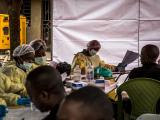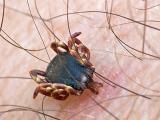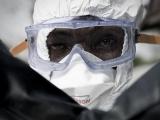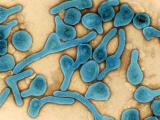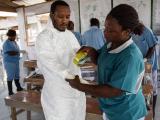Apr 14, 2005 (CIDRAP News) As the death toll in Angola's Marburg hemorrhagic fever epidemic reached 215, the World Health Organization (WHO) reported today that Angolans are refusing to report suspected cases and allow patients to be treated in isolation.
A specially equipped isolation ward at Uige province's 400-bed hospital is empty, even though Marburg cases and deaths are occurring in the area, the WHO reported. "It is apparent that, for the time being, the community does not accept the concept of isolation," the agency said. "Residents are unwilling to report suspected cases and allow these people to be managed under conditions that reduce the risk of further transmission."
The WHO said the outbreak amounted to 235 cases, including 215 deaths, as of Apr 12, up from 231 cases and 210 deaths the day before. Uige remained the center of the outbreak, with 208 cases and 194 deaths.
To make matters worse, four Red Cross volunteers who had just been trained to educate local residents about the disease were killed by lightning today while on their way to work, the WHO statement said.
The agency had announced just yesterday that the International Federation of Red Cross and Red Crescent Societies had decided to send more volunteers to Uige to help fight the epidemic by running educational campaigns. In the past the federation has helped control large outbreaks of Ebola fever, a disease much like Marburg fever.
In reporting the Red Cross workers' deaths, the WHO said it "recognizes the importance of this support and deeply regrets the death of these volunteers."
Because of the resistance to control measures, the agency said, "Family members and other caregivers who refuse to allow patients to be cared for in the isolation facility are being informed of ways to protect themselves from infection and given appropriate supplies. WHO has placed urgent orders for disinfectants, which are currently in short supply in Angola."
Yesterday the WHO said travelers to Angola should be aware of the Marburg outbreak and avoid close contact with sick people. People who have existing medical conditions and might require hospitalization should consider postponing travel to Angola, and especially to Uige, officials said.
Travelers leaving Angola should seek medical attention if they experience any illness with fever within 10 days after their departure, the agency said. Further, "WHO recommends that travelers with a clear exposure history be treated as contacts and placed under surveillance for 21 days, during which time their temperature should be monitored daily."
Officials said they were not aware of any Marburg cases in foreign nationals other than those involved in caring for patients in Uige.
In other developments, US Army scientists are investigating whether a drug that has shown promise against Ebola fever might work against Marburg, the Associated Press reported yesterday. The report said the drug cured Ebola in a third of a group of monkeys that were treated with it in 2003.
But Dr. Mike Ryan of the WHO said that even if the drug seems to work in monkeys, it could be months before it could be tried in human patients, according to the story.
See also:
Apr 14 WHO statement
http://www.who.int/csr/don/2005_04_14a/en/
Apr 13 WHO statement
http://www.who.int/csr/don/2005_04_13/en/
